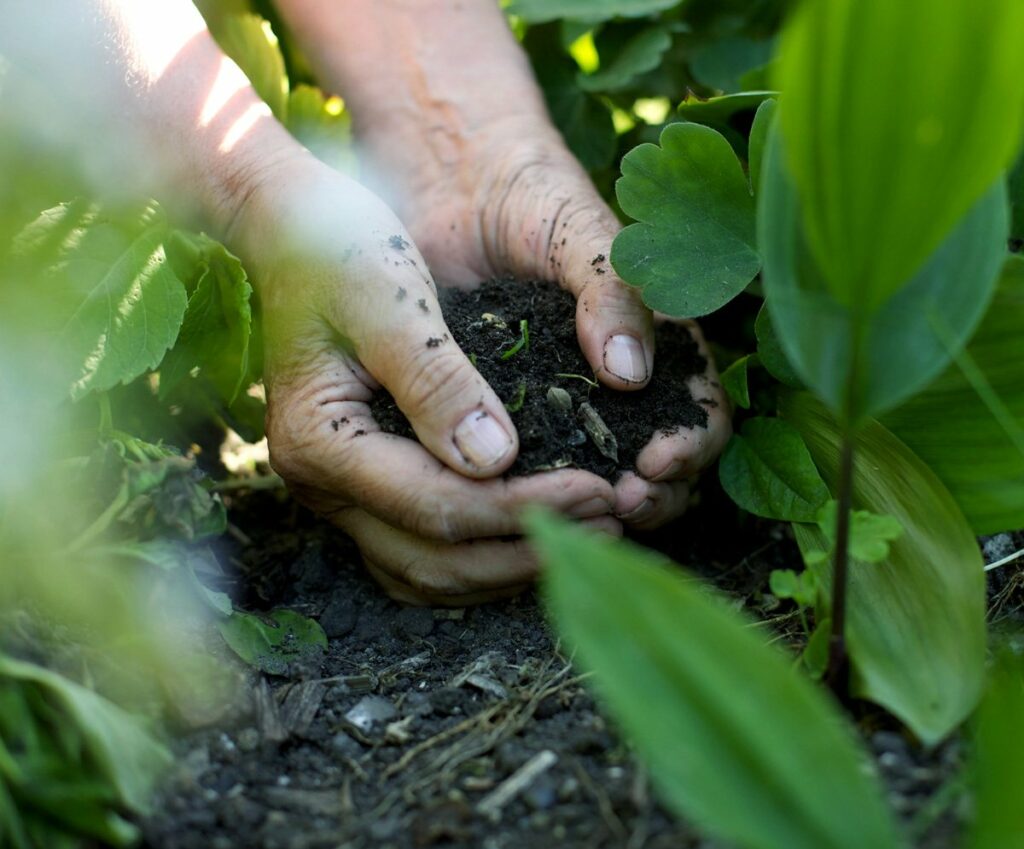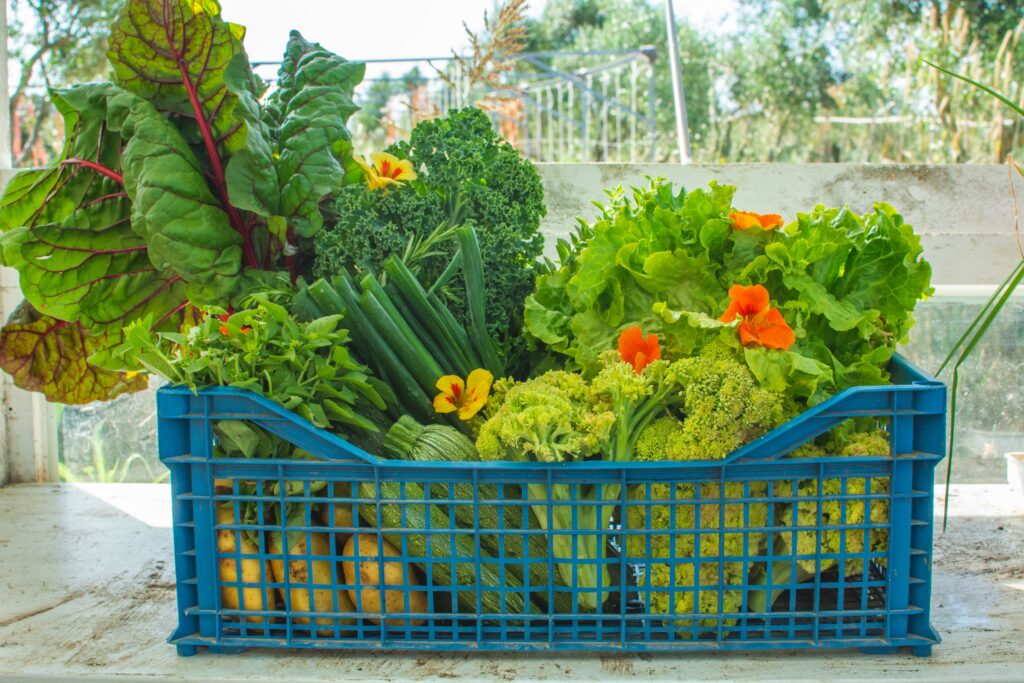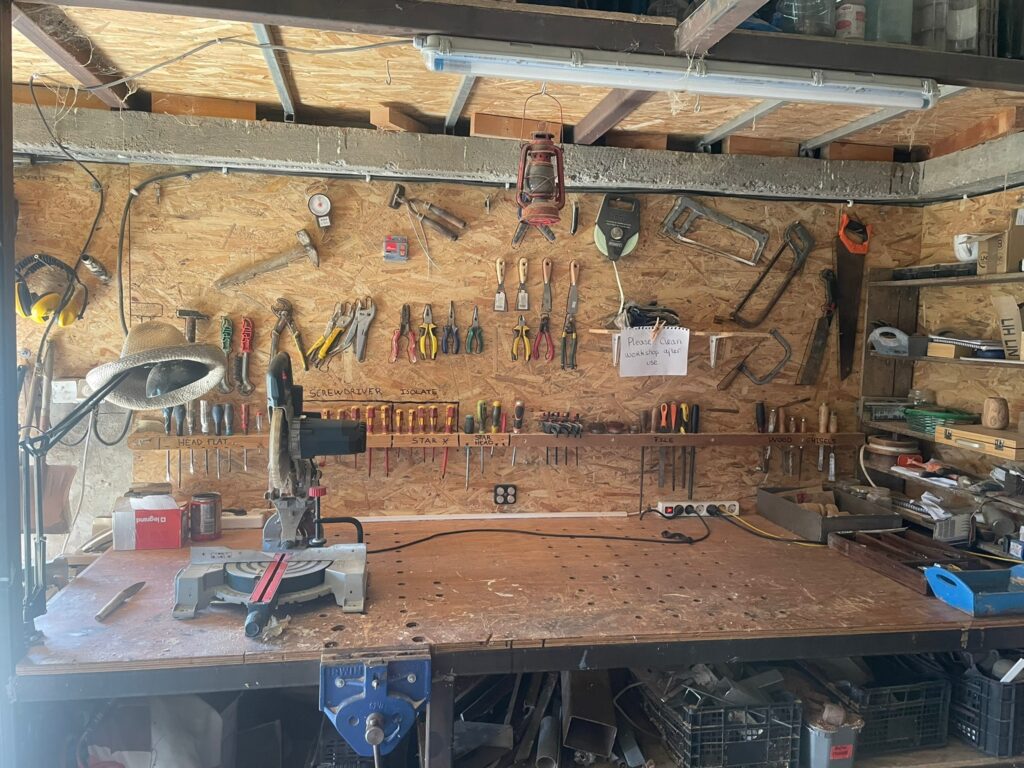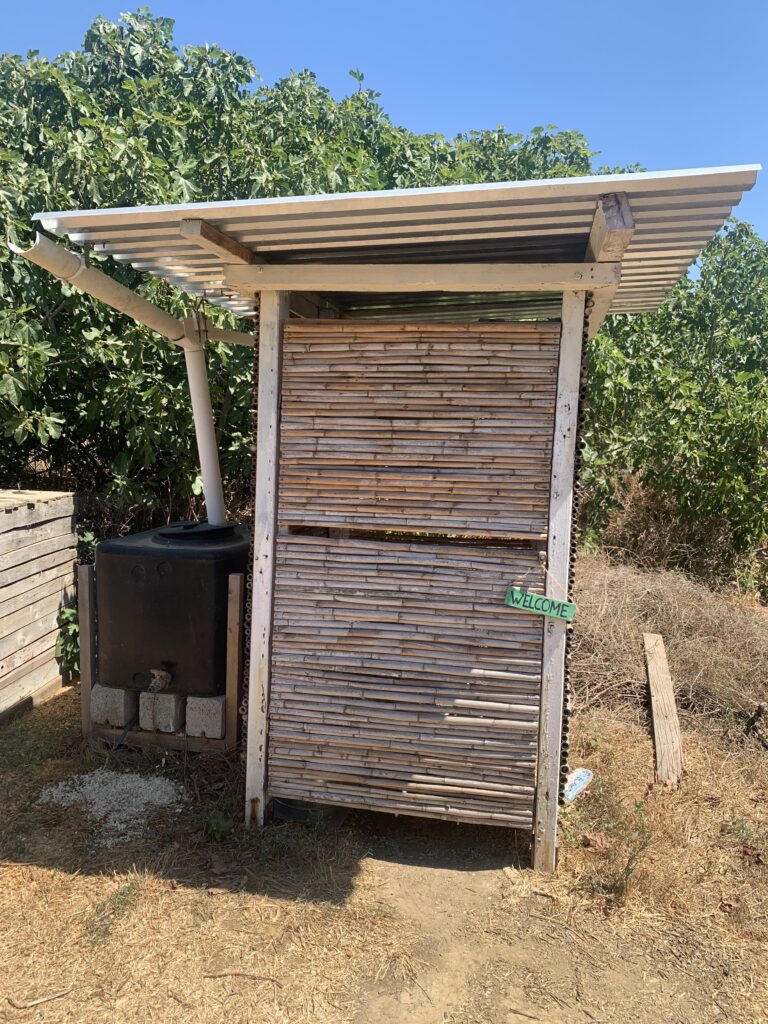Who are we? An eco-alternative, a permaculture farm, an eco-village
Dio Pigadia is an eco-project and non-profit organization (“AMKE”) founded in 2018, focused on creating and exploring sustainable ways of living. At its core is the philosophy of permaculture—more than just farming, it’s about rethinking how we produce and consume locally to address environmental challenges and build a better future.
Our mission is to transform how we grow food, how we use energy and manage resources while finding better ways to live together in a sustainable and balanced society. Dio Pigadia is not just a farm—it’s a community working toward a truly holistic ecological alternative. Welcome to Dio Pigadia ecovillage!
Our journey begins with the soil, the foundation of all ecosystems, as we work to restore and nurture it for a sustainable tomorrow.
Reconnecting with Nature: The Dio Pigadia Way
A different way to consider the soil
Soil is not just something we walk on—it’s the foundation of all life on land. It holds 95% of terrestrial biodiversity, including plants, bacteria, fungi, and insects. Every living being, including humans, depends directly or indirectly on soil for survival.
Unfortunately, conventional agriculture treats soil as a mere substrate, focusing on short-term yields with chemical inputs like fertilizers and pesticides. This approach has degraded soil fertility worldwide, making it harder to produce food, even with heavy inputs.

At Dio Pigadia, we believe the key to sustainable agriculture and healthy ecosystems lies in restoring life to the soil. We use organic matter as mulch to mimic the natural forest floor, regulating moisture, feeding microorganisms, and creating a vibrant, self-sustaining system. By avoiding mechanical tilling, we protect the delicate soil habitat, ensuring life and biodiversity can thrive within.
Rich soil provides biodiversity. It prevents invasive pests by providing their natural predators just like it happens in nature. Biodiversity brings balance.
Most of the invasive pests that traditional agriculture combats with pesticides are simply a result of an unbalanced ecosystem, where monoculture prevents biodiversity. While conventional agriculture sees biodiversity as a problem, we view it as the solution. We embrace biodiversity, not fight against it. By creating and protecting microhabitats such as wild areas, ponds, rock piles, and old wood stacks, we help it thrive. We are all part of a fertility cycle. Biodiversity is not just something to protect—it is what sustains us.
A different way to consider food
Modern food systems have distanced us from the natural cycles that sustain life. Food production and consumption are now leading causes of environmental destruction and health issues.
At Dio Pigadia, we aim to reconnect people with food that is nutritious, flavorful, and sustainably grown. Healthy soil produces stronger, more nutrient-dense plants, which in turn nourish our bodies and support our gut health.

Bringing back biodiversity and fertility in the soil ensures a rich and complex substrate where plants can find what they need to be healthier and stronger.
When we in turn eat the products of these plants we not only enjoy the delicious taste but also become healthier and stronger by providing our body with qualitative food.
Recent studies have shown how the biodiversity of our intestinal flora has weakened drastically in the last 50 years. This is related to the poor quality of our food as well as the consumption of antibiotics, preservatives, or pesticides. This low intestinal flora explains many health problems since our body is not able to break down essential vital elements from food. Digesting healthy plants is the way to have a better intestinal flora.
It also relates to our mental health since there is no healthy mind without a healthy body.
Food is not only a source of good health, it is also quite pleasurable! We consider food production and food processing as two sides of the same coin. The diversity of cultures that meet in Dio Pigadia is reflected in a variety of recipes inspired by local products and the variety of our production. Come rediscover food here, it is world´s cuisine at its best!
We are also encouraging the revival of traditional food preservation such as drying, canning, and salting. We produce a variety of transformed food, from our world-famous homemade olive paste and spicy ketchup to marmalades, dried fruits, pickles… The list is long and evolves over the seasons!
A different way to manage energy and resources
Since the creation of the farm in 2018, all facilities have been self-built by using mostly upcycled materials.

The first step was to establish a fully equipped workshop (80 m2 building available on site), enabling the construction of the necessary infrastructures. We try to make and repair everything ourselves, mostly with upcycled materials so we don’t have to import and buy expensive things. We always favor local materials.
We observed that the workshop encouraged creative approaches and design innovations from outside helpers. Learning how to use tools, how to design, and how to build with available materials is an essential part of the project. We need to know how to use our hands to repair and build things.
Solar energy, rainwater harvesting, and gravity systems have been installed on the site. The facilities themselves are intended to be part of a resilient and ecological approach.
For example, a plant nursery that is built out of recycled windows is combined with a shower, as these two functions are mutually beneficial (humidity, warmth, and water control).

Dry toilets contribute to soil fertilization. This is far from anecdotal. The fact that people flush their excrements in water that has been treated with chlorine to make it potable says a lot. Disconnected from the cycle of nature we transform fertility into pollution. And we then have to produce Urea, a chemical fertilizer that is basically chemical urine to fertilize our crops. We disregard our excrement as much as we do our food.
Natural building techniques are used for construction. Cob (a mix of hay, sand, and clay) is a natural material available on-site. We use it extensively and enjoy working with a magic material that is fun, easy and healthy to work with!
Building with cob makes for great moments of fun work where everybody participates, older and younger, bringing people together!
A different way to live and learn together

The project is evolving on a more social level with the participation of so many volunteers. There are currently on average 10-15 volunteers and 9 Pigadians (permanent members) living on the farm. They get to know and understand each other by sharing so much. We are open-minded and don᾽t discriminate. It is a place of exchange.
Organizing the living and working together has become a fun and exciting challenge. Community living involves an exchange of knowledge, practices, and general life experiences. This sharing is now at the heart of our purpose.
As this is a pioneer project, leading the way, the role of education is central. We see it above all as a process of learning together, encouraging everyone to find their place, according to their interests and skills. We try to give great autonomy to the volunteers participating so that they are fully involved in the project and can take responsibility. The aim is that people feel at home here and learn.
People often come to Dio Pigadia with a need to find meaning, some have felt loneliness and are burnt out or just disillusioned by the standard urban lifestyle, conventional agriculture and consumerist/productivist values. They need a place to share, a place for bonding, for dreaming. A place to act and feel useful.
Many come tired and leave full of good energy, thankful for the experience. This might be the main function of a project like this, to heal and give hope.
It is hard to grasp the magic happening here. Come check it out for yourself: it has become a place of hope for the future where people get inspired and believe in an alternative for the future.
We aim to rebuild the soil in an ecological approach but also the human substrate, the bonding between people. The biodiversity of the soil reflects in the diversity and open-mindedness of the people supporting this project.
Let’s get together, work together, dream together!
Support Dio Pigadia and help us make a better world reality!
